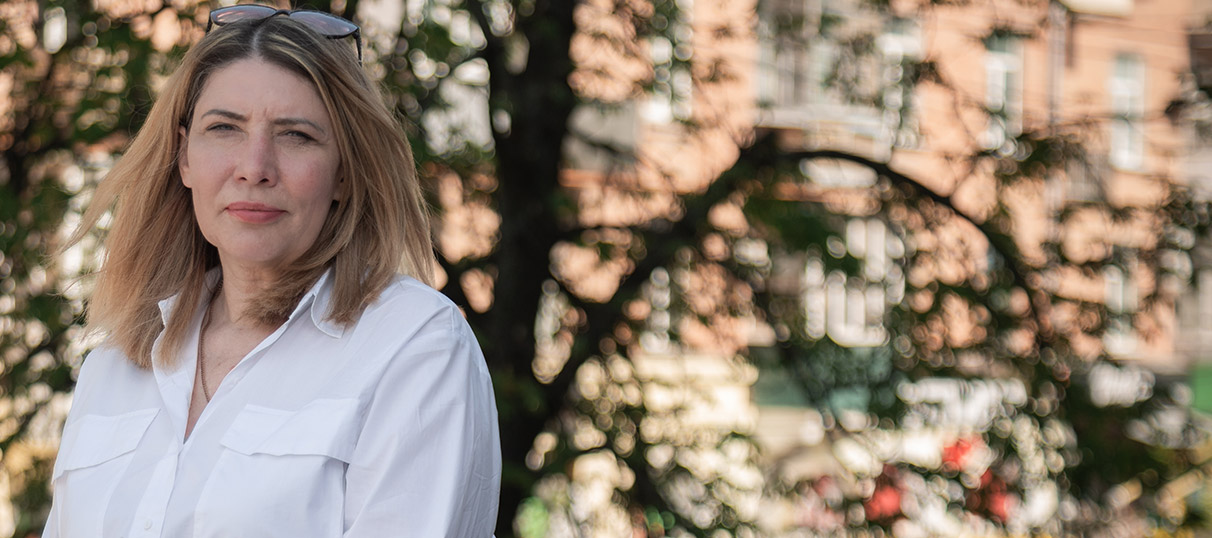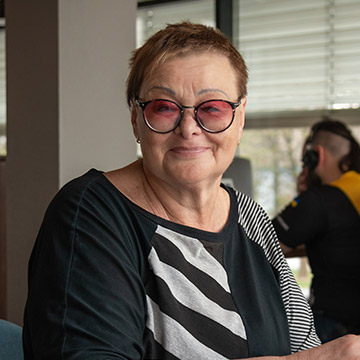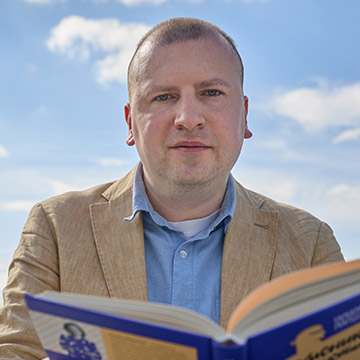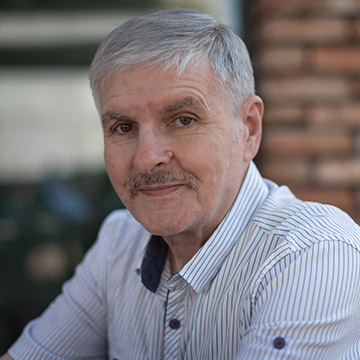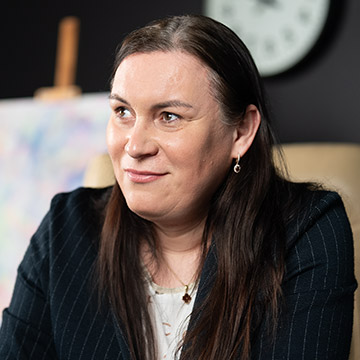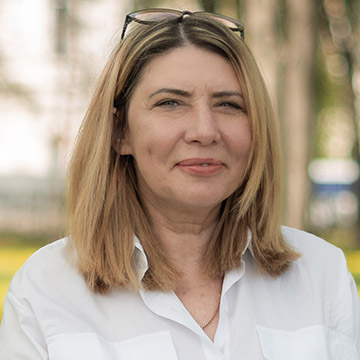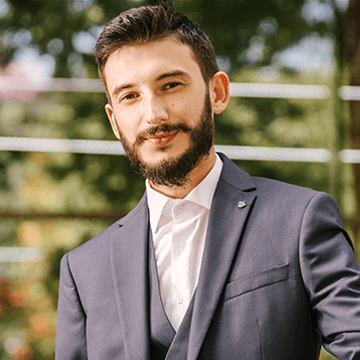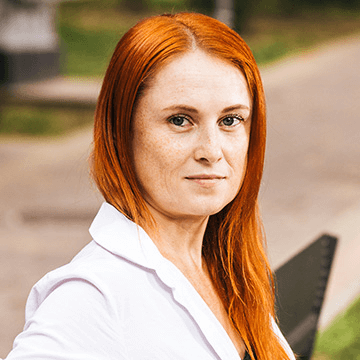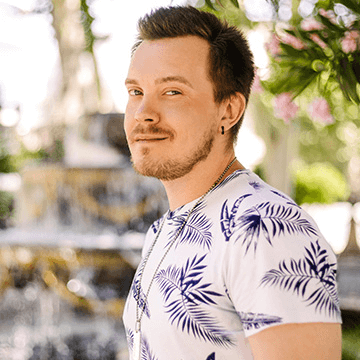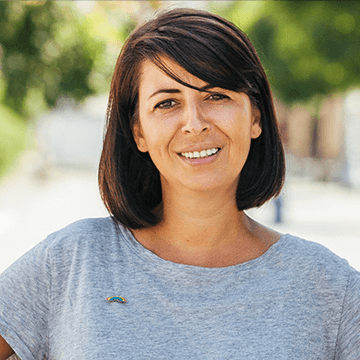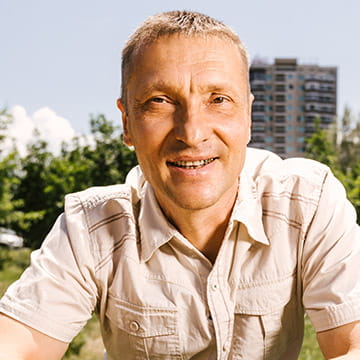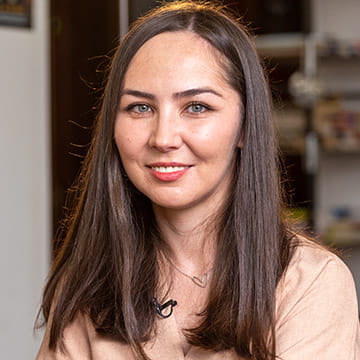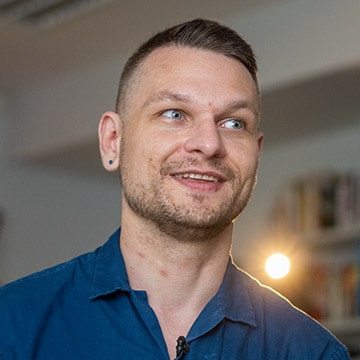Olga’s story
Poltava, Ukraine
As a young, married woman, Olga was keen to have a child. In preparation for a future pregnancy, Olga decided to get a full health test, including a test for HIV. Olga was shocked to hear she was living with HIV and the doctors failed to tell her how she could be treated or supported through such a momentous time in her life. For some time, she tried to cope with her diagnosis on her own.
While studying at university to become a teacher, Olga met other people living with HIV who were studying, getting married, and having children. And she thought that there must have been some secret she didn’t know about … “how could they be living with HIV, and continue being so happy, living their lives to the fullest?” This was a turning point for Olga when she realised that her HIV status did not define her. After learning all there was to know about HIV, she realised she could give birth to a healthy child and decided to do just that.
How could they be living with HIV, and continue being so happy, living their lives to the fullest?
Despite suffering from two earlier miscarriages, after treatment Olga gave birth to a healthy baby and began her career, working night shifts at a rehabilitation centre, before getting a job at the Poltava Oblast AIDS Centre. Whilst working there, she met various people, and decided to share “the secret” that you can live well with HIV, have children, go on trips abroad, and enjoy your life.
In 2018, Olga also started working with a national-level charity organisation called Positive Women and began representing the interests of women living with HIV in Poltava Oblast of Ukraine at coordination councils, and began advocating on gender issues and the elimination of mother-to-child HIV transmission.
Fighting for causes such as lactation suppression medication and milk formula reimbursement and supply are an important part of Olga’s work. They are essential barriers to mother-to-child HIV transmission and make for a much easier experience of motherhood, while navigating health and the uncertain consequences of living through a war.
While supporting other women, Olga continues to experience prejudice in her own life, even from healthcare professionals once they find out about her HIV status. Even recently, when going to the doctor after experiencing some bleeding, there was some concern shown that her HIV may spread. Her status was meant to be private (only known by the doctor) but she suspected other staff knew because of some comments like “put on gloves – you can’t do it without gloves”, when being fitted with a catheter. Although, in principle, this is not a violation, it made her uncomfortable.
As well as working with healthcare professionals and advocating for policy change, Positive Women provides essential legal and psychosocial services to women in Poltava, and the Safe Space centre offers respite to women during a turbulent and challenging time in Ukraine.
Because of her own experiences, Olga makes even more of an effort to ensure doctors are educated on how to treat people living with HIV because “they are there to treat everyone, regardless of their health condition including, and especially, people living with HIV.”
Impact of RADIAN on Olga’s work
The war in Ukraine brought much hardship to women living with HIV, and funding through RADIAN has given Olga the opportunity to lead the regional organisation, Positive Women Poltava and provide women with necessities that have become scarce during the war.
“Support from donors is huge, we are so grateful. I want to just hug the donors, because it has been very hard. You know, it is very difficult to make a choice between women who need help. It is hard for us to decide who needs it most, because everyone needs it really.”
Beyond the HIV services that RADIAN-supported programmes are able to deliver to the community, funding from the partnership has enabled organisations like Positive Women to provide humanitarian services for women living with HIV and their children.
Vouchers they distribute mean that women can buy nappies for their children, formula milk, food, and small gifts for their children. As Olga puts it, “children need more than borscht and a piece of bread, sometimes they need to feel that they are just children, without worry,” and funding from the RADIAN partnership has allowed that to happen.



